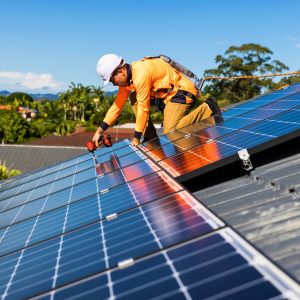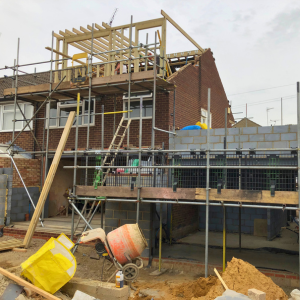|
Buying a house with solar panels
 If you are considering buying a house with solar panels, you are joining a growing club. As of June 2024, 4.9% of UK homes have solar installations. The percentage may sound modest, but that’s up from 3.5% just two years ago.
If you are considering buying a house with solar panels, you are joining a growing club. As of June 2024, 4.9% of UK homes have solar installations. The percentage may sound modest, but that’s up from 3.5% just two years ago.
And the prospect of a more rapid expansion of domestic solar energy is on the horizon. As part of its Future Homes Standard, the government is consulting on proposals to make solar or photovoltaic panels mandatory for all new build homes after April 2025. One option under consideration would require panels covering the equivalent of 40% of the property’s ground floor area.
Rapidly expanding renewables can only be a positive step. But as a current or potential homeowner, it’s crucial to understand your legal relationship with your solar installation and how it affects a house sale, among other issues. That begins with the question of who owns solar panels.
See also: Do I need planning permission for solar panels?
Who owns solar panels?
It’s easy to assume that a solar installation on a roof means the householder owns it. However, that’s not always the case.
Between 2010 and 2019, the government’s Feed-In Tariff (FiT) promoted the growth of domestic renewable energy production (not just solar) through a financial incentive. The FiT scheme offered two tariffs:
- A generation tariff for all electricity the installation produces regardless of whether the home generator uses or exports it.
- An export tariff for any electricity sent to the grid.
Unsurprisingly, the scheme proved popular, and energy companies quickly saw an opportunity. Rather than paying for their solar installation, a homeowner could lease their roofs to an energy company for, say, 20 or 25 years. In return, they receive free electricity during that time, with the leasing company collecting the tariff payments.
Disadvantages of selling a property with solar panels
However, selling a property subject to such a third party rent-a-roof scheme often presents problems:
- First, many companies that leased roofs during the FiT boom have since gone into liquidation. In such cases, discovering the identity of the current lessee can prove difficult as a change of ownership is not always communicated to the homeowner. Sellers should request details of who owns the panels and the FiT license by submitting a Subject Access Request to Ofgem: FITRegister@Ofgem.gov.uk.
- Second, mortgage lenders are reluctant to lend on properties subject to a roof lease. In many cases, that means a potential market limited to cash buyers.
- Third, occasionally, lease agreements require the panel owner’s consent to sell the property.
- Fourth, some leases allow the company to extend the lease term indefinitely, a significant deterrent to potential buyers.
Facing such overwhelming problems, a seller may consider ending the lease early. However, to do so, they will likely face a significant early exit fee, potentially tens of thousands of pounds. And even if the seller owns their panels outright, a sale involves more red tape and paperwork than usual – sometimes discouraging to buyers.
Permitted work to property with roof lease
 Many of us buy a house with an eye to its potential. However, releasing that potential often involves major work. So, a significant consideration before buying a property subject to a roof lease is whether and to what extent the lease restricts work to the property.
Many of us buy a house with an eye to its potential. However, releasing that potential often involves major work. So, a significant consideration before buying a property subject to a roof lease is whether and to what extent the lease restricts work to the property.
Commonly, you may require lessee consent for any extension works, not just a roof extension.
And beware of clauses affecting any need to temporarily remove, cover, or disconnect the solar installation.
Buying a house with solar panels: transferring ownership of the installation
If the seller owns the solar installation, it’s usually considered a fixture. However, ownership must still be independently transferred to the buyer, which involves additional paperwork.
Considering all of these issues, it’s crucial that a buyer has confidence that their conveyancer has the necessary knowledge and experience to deal with them.

 Residential property specialist
Residential property specialist